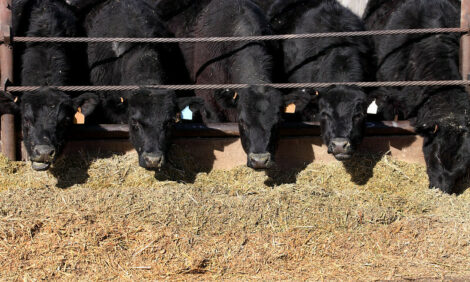



Response to Discrepancies in Report on Antibioitcs
US - A coalition representing a broad array of interests involved in producing food from livestock and poultry this week sent a letter to congressional leaders to set the record straight regarding antibiotics usage in food-producing animals, emphasising that consumers deserve a choice when it comes to their meat and poultry purchases, but also need accurate information about those choices.The letter was sent in response to a recent Consumers Union report on the use of antibiotics in animal production.
“Blanket actions to restrict antibiotic use would hurt countless animals, limit our ability to prevent, control and treat disease and actually make our food system less safe. We agree that a dialogue is essential to the use of antibiotics in farm animals, but we stand firm that antibiotics, when used properly and under the care of a veterinarian, are critical to making food safe,” stated the coalition in its letter.
The coalition further noted that all production systems, including organic, conventional and others, come with their own set of issues that must be addressed. The letter states that regardless of the production system consumers choose to support, they should have confidence in the safety and nutrition of their meat and poultry purchases.
The letter also corrects some of the erroneous claims in the Consumer Union campaign, including:
- There is no accurate data available to make claims about the percentage of antibiotics used in animals. Forty per cent of the antibiotics used in food animals are compounds not used in human medicine – so they cannot contribute to the possibility of antibiotic resistance in humans.
- Farms are not factories. In fact, 97 per cent of all farms in the United States are family-owned.
- Most antibiotics used in food animals are used for therapeutic purposes, meaning to control and prevent disease. The most recent data available shows 87 per cent are for these reasons.
- Animals are raised indoors in order to keep them healthy and minimize the need for antibiotics.
The coalition also emphasized the FDA’s current efforts to extend veterinary oversight of all medically important antibiotics used in animals and phase out growth promotion uses. They also pointed out that all meat and poultry products’ labeling must be approved by the US Department of Agriculture (USDA) to ensure they are not misleading.
“As food producers, our members’ focus every day is the care and well-being of animals to produce a safe and wholesome product. As food consumers, the same members demand safe and wholesome food for themselves and their families,” the coalition concluded. “All production systems have food safety and animal health challenges, and our members work hard to meet those challenges and remain committed to providing the best and safest possible food product.”
The letter was signed by the Animal Health Institute, American Association of Swine Veterinarians, American Farm Bureau, American Feed Industry Association, American Meat Institute, American Veterinary Medical Association, Animal Agriculture Alliance, National Cattlemen’s Beef Association, National Chicken Council, National Grain and Feed Association, National Milk Producers Federation, National Pork Producers Council, National Turkey Federation, North American Meat Association, US Poultry & Egg Association.
TheCattleSite News Desk


